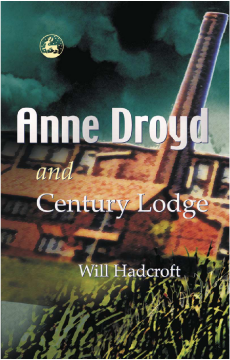
Additional Information
Book Details
Abstract
Gezz and her best friends Malcolm and Luke are having fun on the housing estate where they live, when the arrival of a stranger interrupts their everyday lives and changes the world as they know it forever. Created by a professor of robotics, Anne Droyd is left in the care of these three children, who take her to school with them and teach her how to be 'a human'.
This imaginative tale packed full of heroic characters and Asperger adventure is suitable for children aged 9 and over.
Will Hadcroft left school believing himself to be a failure both academically and socially because of our society's `dislike for the unlike'. When he discovered the term Asperger Syndrome in 2003 everything began to make a lot more sense. Will has an insatiable passion for writing and is the author of The Feeling's Unmutual: Growing Up with Asperger Syndrome (Undiagnosed) also published by Jessica Kingsley Publishers. He has written a number of articles for magazines such as the Celestial Toyroom and the Classic Television Magazine. He married in 1993 and lives happily with his wife Carol in Lancashire, England.
This Asperger adventure explores the human condition and the need to integrate into a society that demands conformity. The author's pun on 'android' introduces the theme of alienation that runs throughout, a tool used to provide comfort to individuals who feel like `aliens', excluded from their social environment. Readers will be captivated by the heroic characters and the colourful plot, and engaged by Hadcroft's imaginative presentation of real life issues such as smoking, bullying and peer acceptance.
Autism Us
Table of Contents
| Section Title | Page | Action | Price |
|---|---|---|---|
| Prelims (Contents, About the Authors, Glossary of participatory methods and tools discussed in this book, List of acronyms, List of figures, tables and boxes) | |||
| 1. Introduction | |||
| Karen Brock, Jethro Pettit | |||
| 2. Seeds of success are seeds for potential failure: learning from the evolution of Reflect | |||
| David Archer | |||
| 3. Training and facilitation: the propellers of participatory methodologies | |||
| Maria Nandago | |||
| 4. Can an international NGO practise what it preaches in participation? The case of ActionAid International | |||
| Kate Newman | |||
| 5. It’s not just about the pictures! It’s also about principles, process and power: tensions in the development of the Internal Learning System | |||
| Helzi Noponen | |||
| 6. Steering the boat of life with the Internal Learning System: the oar of learning | |||
| D. Narendranath | |||
| 7.Evolution of the Internal Learning System: a case study of the New Entity for Social Action | |||
| Sundaram Nagasundari | |||
| 8. Road to the foot of the mountain, but reaching for the sun: PALS adventures and challenges | |||
| Linda Mayoux | |||
| 9. Keeping the art of participation bubbling: some reflections on what stimulates creativity in using participatory methods | |||
| Dee Jupp | |||
| 10. HIV and AIDS, the global tsunami: the role of Stepping Stones as one participatory approach to diminish its onslaught | |||
| Alice Welbourn | |||
| 11. Using numerical data from participatory research to support the Millennium Development Goals: the case for locally owned information systems | |||
| Sarah Levy | |||
| 12. Participatory village poverty reduction planning and index-based poverty mapping in China | |||
| Joe Remenyi | |||
| 13. Navigating the trade-offs in the use of participatory approaches for research | |||
| Carlos Barahona, Dee Jupp, Helzi Noponen, Alice Welbourn | |||
| 14. Creating, evolving and supporting participatory methodologies: lessons for funders and innovators | |||
| Robert Chambers | |||
| Back matter (Endnotes, References, Index) |
